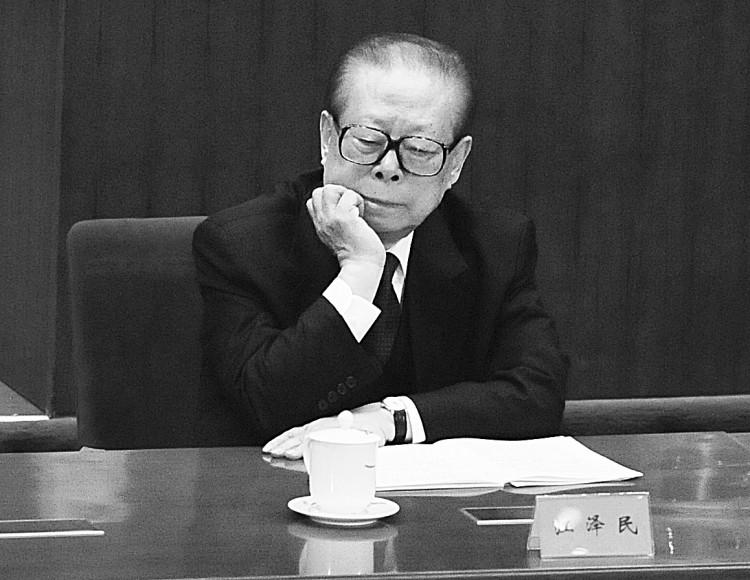
Jiang Zemin’s son was found to be implicated in several major corruption scandals in 2007, revealing some of the secrets behind the money laundering practice of Chinese Communist Party (CCP) leaders through the privatization of state enterprises.
Jiang Zemin was paramount leader of China from 1989-2002, and this gave him the ability to abuse his political power and embezzle government resources.
According to Renmin Newspaper, it was reported that Jiangsu was the place where Jiang Zemin originally started his money laundering operations, washing money stolen from Chinese taxpayers.
In Jiangsu Province, through projects funded by the central government, Jiang was able to abuse his political power and reap personal profits from money laundering.
According to insiders in Beijing, during Zhu Rongji’s time as China’s Premier, he endorsed the plan proposed by Jiang for “the privatization of the state enterprises”, and worked with Jiang to jointly foster their development. Zhu Rongji pledged to drag China’s state enterprises out of poverty in three years. But two years later, Zhu suddenly realized that a number of state enterprises had become so-called “bottomless holes”; no matter how much money was invested in them, they never developed, but instead continued to solicit the state for more funds.
The funding for state enterprises allocated by the central government was turned into various forms of loans for economic stimuli. Through the formation of joint ventures with foreign corporations, government officials were able to pocket personal gains through the process. The privatization of the state enterprises set the stage for Jiang’s transfer of his private assets abroad, which contributed to further money laundering.
As China opened its doors to foreign enterprises, it also opened the doors to further channels of corruption, as foreign companies came to assist Jiang in the process of laundering money.
According to the book Anything for Power: The Real Story of China’s Jiang Zemin, based on sources in Shanghai familiar with Jiang and published by The Epoch Times, after Jiang was appointed Party head in 1993, his son returned to China from America and embarked on a path of corruption with his father. In 1994, Jiang Mianheng used several million yuan to purchase the state enterprise Shanghai Joint Venture, which was worth several hundred million yuan on the Shanghai Stock Exchange at that time. On the surface, it was still a state enterprise, but in actuality, it had become the private property of Jiang Mianheng.
According to the book, state enterprises that Jiang’s son has taken charge of include China Netcom Telecommunications Limited (wang tong), Shanghai Automobile Industry (shanghai qiche gongye jituan gongsi), Shanghai Information Network (shanghai xinxi wangluo), and Shanghai Airport Corporation (shanghai jichang jituan gongsi). These state enterprises, through the process of privatization, have become the private properties of the Jiang family.
Many prominent foreign figures in business and politics sought to forge close ties with Jiang after he rose to power, including a former CEO of a large Wall Street firm. This man formed an investment bank between another large Wall Street firm and a Chinese state-owned bank; this investment bank became the most important channel through which a tremendous amount of wealth was collected and transferred out of China, according to insiders in Beijing.
Read the original Chinese article.
The Epoch Times publishes in 35 countries and in 19 languages. Subscribe to our e-newsletter.
 The Epoch Times features the Chinese Regime in Crisis special topic www.ept.ms/ccp-crisis bringing you the most recent developments in the ongoing crisis within the Chinese communist regime. Get the RSS feed. Get the new interactive Timeline of Events. Who are the Major Players?
The Epoch Times features the Chinese Regime in Crisis special topic www.ept.ms/ccp-crisis bringing you the most recent developments in the ongoing crisis within the Chinese communist regime. Get the RSS feed. Get the new interactive Timeline of Events. Who are the Major Players? ![]()


